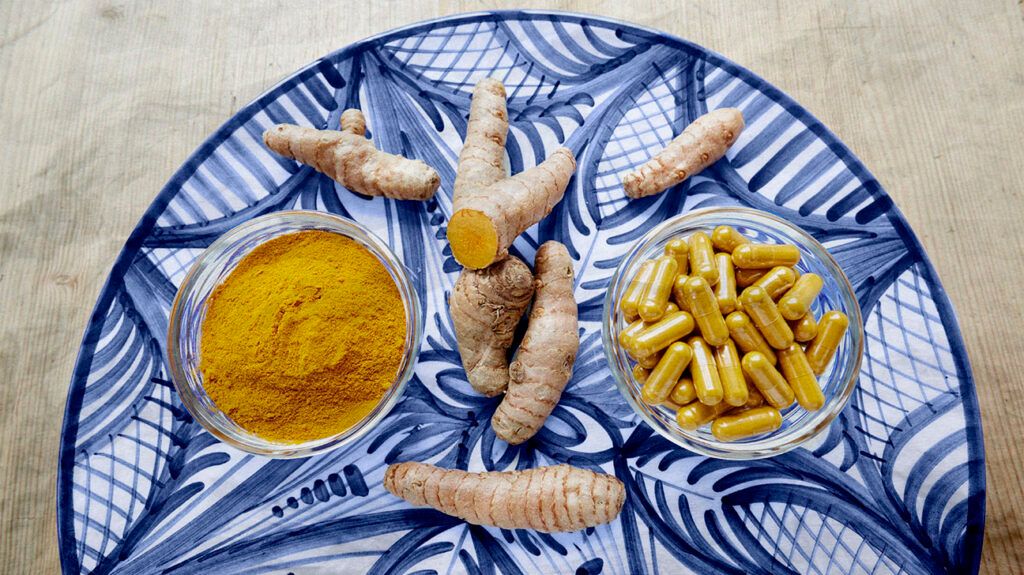Turmeric may have some potential benefits for overactive bladder, although this requires further research. There is currently little evidence on how and when to take it.
Overactive bladder (OAB) is the term for a collection of urinary symptoms, including increased frequency and urgency.
This article looks at whether turmeric may help treat OAB, other natural remedies and medical treatments for OAB, and other potential health benefits of turmeric.

There is little evidence on using turmeric as a treatment for OAB, including how or when to take it.
However, turmeric does contain curcumin, which may have some potential benefits for OAB.
According to a 2023 article, curcumin may help manage OAB due to its effects on certain receptors that relax and contract the bladder muscles.
According to a 2020 review, the quantities of turmeric people typically use in cooking for flavor are unlikely to have any substantial health benefits for the health conditions they reviewed, which were arthritis, metabolic syndrome, and type 2 diabetes.
Oral curcumin also has poor bioavailability, which means it is not easy for the body to absorb and use.
Research suggests the following natural remedies may have potential benefits for OAB:
- Pumpkin seed oil: Clinical trials have examined the effect of pumpkin seed oil on different health conditions of men, including OAB. Older research found that pumpkin seed oil improved OAB symptoms over
12 weeks of use.
- Gosha-jinki-gan: A traditional Chinese medicine that may help reduce nocturia, which is frequent nighttime urination.
- Cranberry: A 2021 study found that daily consumption of dried cranberry powder reduced urination frequency and urgency in females with OAB, although the researchers note that this requires further research.
Learn more about natural remedies for OAB.
Other treatments for OAB include lifestyle changes and medical treatments. Lifestyle changes include:
- reducing or avoiding certain foods and drinks which irritate the bladder
- recording symptoms to identify triggers that may worsen OAB
- emptying the bladder twice (double voiding) when using the bathroom
- delaying voiding, which gradually increases the time people wait before using the bathroom
- timing urination, which involves following a schedule for using the bathroom
- practicing kegel exercises to strengthen the pelvic floor muscles
- trying biofeedback to learn about their bladder muscles
People trying delayed voiding or timed urination might find it helpful to work with a healthcare professional.
Medical treatments include:
- prescription medications, such as antimuscarinics or beta-3 agonists
- Botox injections to the bladder to relax the bladder wall and reduce symptoms of OAB
- nerve stimulation to improve communication between the brain and nerves to the bladder
- surgery to enlarge the bladder or reroute urine flow, in rare cases if OAB is severe and not responding to other treatments
Learn more about different treatments for OAB.
According to a 2020 review, turmeric or curcumin may benefit other health conditions.
For example, curcumin may help to reduce arthritis symptoms and reduce the need for pain medications.
Curcumin may also help metabolic syndrome by reducing levels of C-reactive protein and leptin, although this requires further evidence. C-reactive protein can indicate inflammation in the body.
Curcumin
Further studies will help researchers better understand the potential health benefits of turmeric for specific conditions.
Learn more about turmeric and diabetes.
This section answers some frequently asked questions about turmeric and overactive bladder.
What calms down an overactive bladder?
Avoiding certain foods and drinks may help to reduce irritation of the bladder. This may include:
- caffeine
- alcohol
- soda and fizzy drinks
- citrus fruits
- spicy foods
- tomatoes and tomato-based products
- dark chocolate
People may want to include foods in their diet that may support the bladder and digestion, such as:
- increasing fiber intake through foods such as oatmeal and whole grains
- fruit and vegetables
- beans and legumes
What is the best natural supplement for overactive bladder?
There are various supplements that people may find beneficial for OAB, and it may depend on the individual.
A 2020 study of 84 females found that a specific oral supplement was an effective treatment for OAB after 12 weeks of use, and participants tolerated it well. The supplement contained:
The researchers noted that larger-scale trials with placebos may help support these findings.
It is best to discuss supplements with a doctor before use.
What vitamin deficiency causes overactive bladder?
According to a 2023 systematic review, a vitamin D deficiency increases the risk of OAB. Taking a vitamin D supplement may help to prevent urinary incontinence.
There is little evidence supporting the use of turmeric specifically for treating OAB.
People may find other natural remedies, lifestyle changes, or medical treatments to help manage OAB symptoms.
If people want to start taking supplements for OAB, they can talk with a healthcare professional to discuss the best options for them.
